
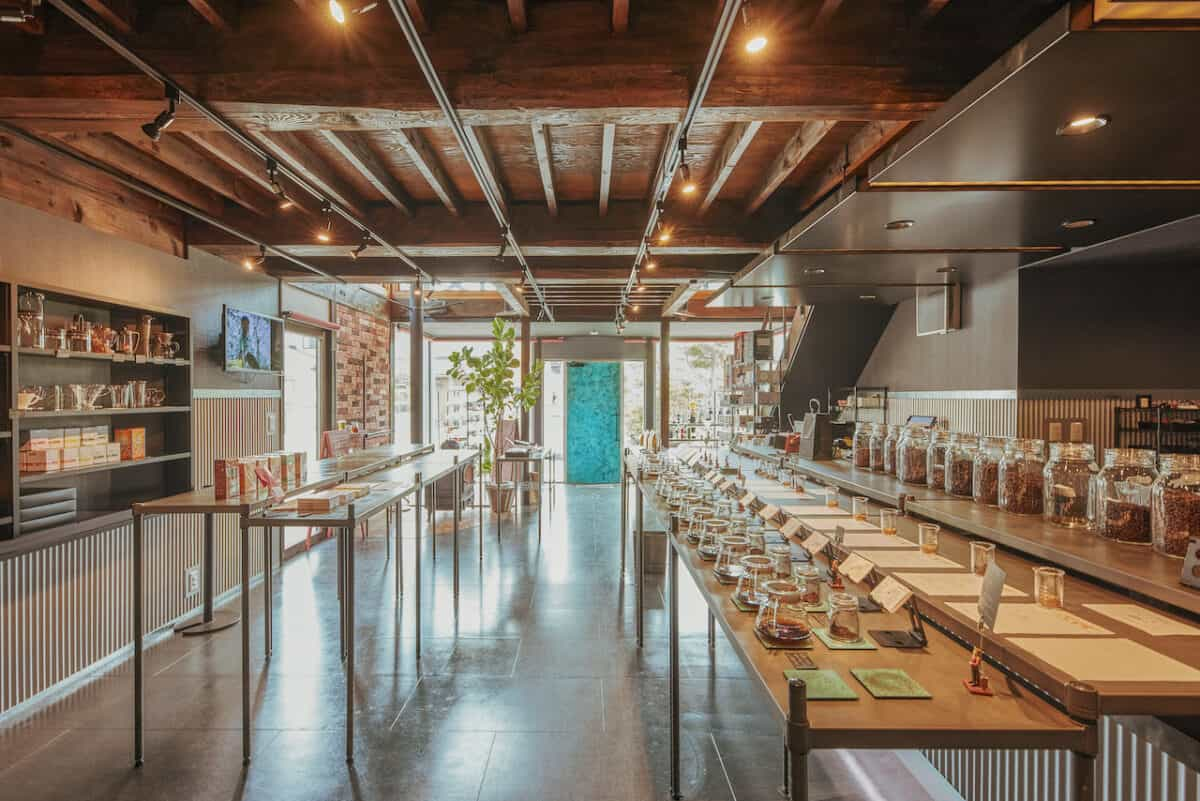
Good Enough Coffee Toyama, or just Good Enough Coffee, is a specialty coffee shop that opened in April 2019 in the owner’s hometown of Toyama prefecture, Japan. The concept of the shop is “everything is here.” We speak with Mr. Amane Oshio, who has been involved in unique initiatives like offering a tasting service of all the coffees sold at his shop and selling less than perfect coffees as “outlet coffees.”
※ Titles in the text are omitted.
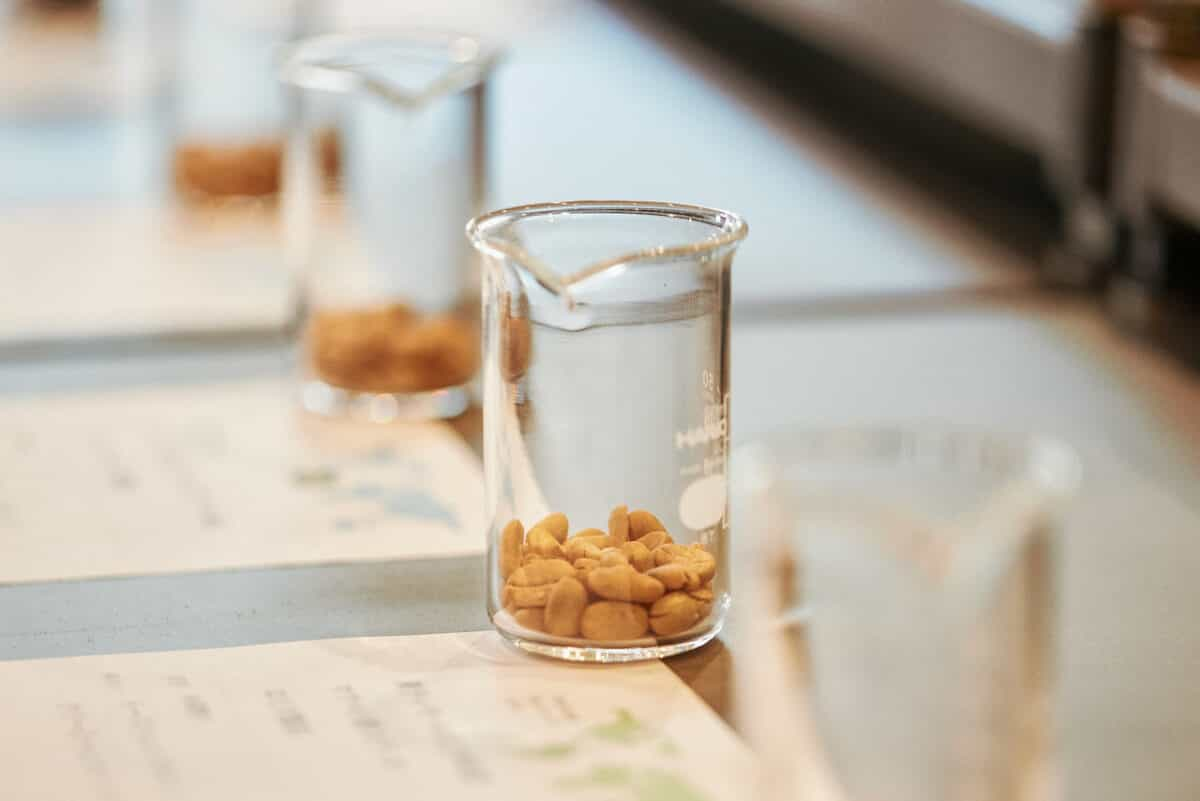
Feeling unease with a sense of discomfort at a coffee farm in Brazil
When Oshio visited a specialty coffee farm in Brazil in 2014 with a famous exporter as his guide, he felt a sense of discomfort.
Oshio recalls, “All the people who greeted us and welcomed us were white, and all the people serving us in the big house were black. I wondered if the class system hadn’t changed over the generations since colonial time, when Portuguese people brought black people from Africa to build coffee plantations.”
“The farm had housing for the black employees, a daycare and a nursery, so the environment was relatively good. But I also got the impression that the employer was “providing” them the benefits meaning I was suspecting other than the superficial “employer providing the staff with employment benefits.” The owner of the farm told me, ‘It’s wonderful this kind of relationship between white and black people has been going on for generations,’ but I was not convinced at all.”
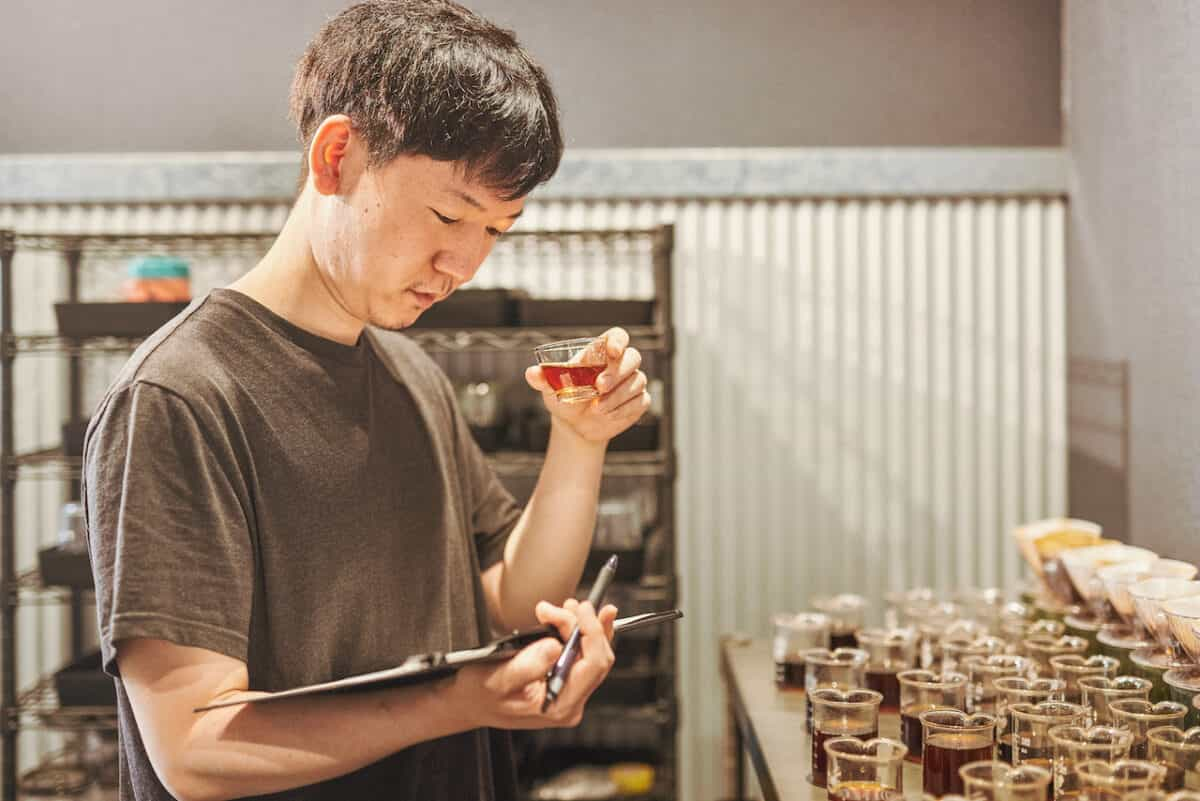
Good Enough Coffee, which advocates fair trade, was born out of the discomfort Oshio felt at the time. Yet, it doesn’t mean that Good Enough Coffee has brought fair trade to the fore.
“When I was involved with a non-profit organization that advocated fair trade, I noticed that their quality control was not done properly while having very high aspirations. Relationships supported by the goodwill of the buyers were not sustainable. In order to achieve economic independence for the local people, I thought it’s important to improve the quality of the products and provide delicious food for the people who are not even interested in fair trade would also want to buy.”
“Maybe that’s why I’ve seen firsthand that many customers agree with my way of thinking, and want to spend money with the expectation that I will continue to do things right. Even when my roasting doesn’t turn out to be good, I’m grateful people will continue to buy my products so that they can support me.”

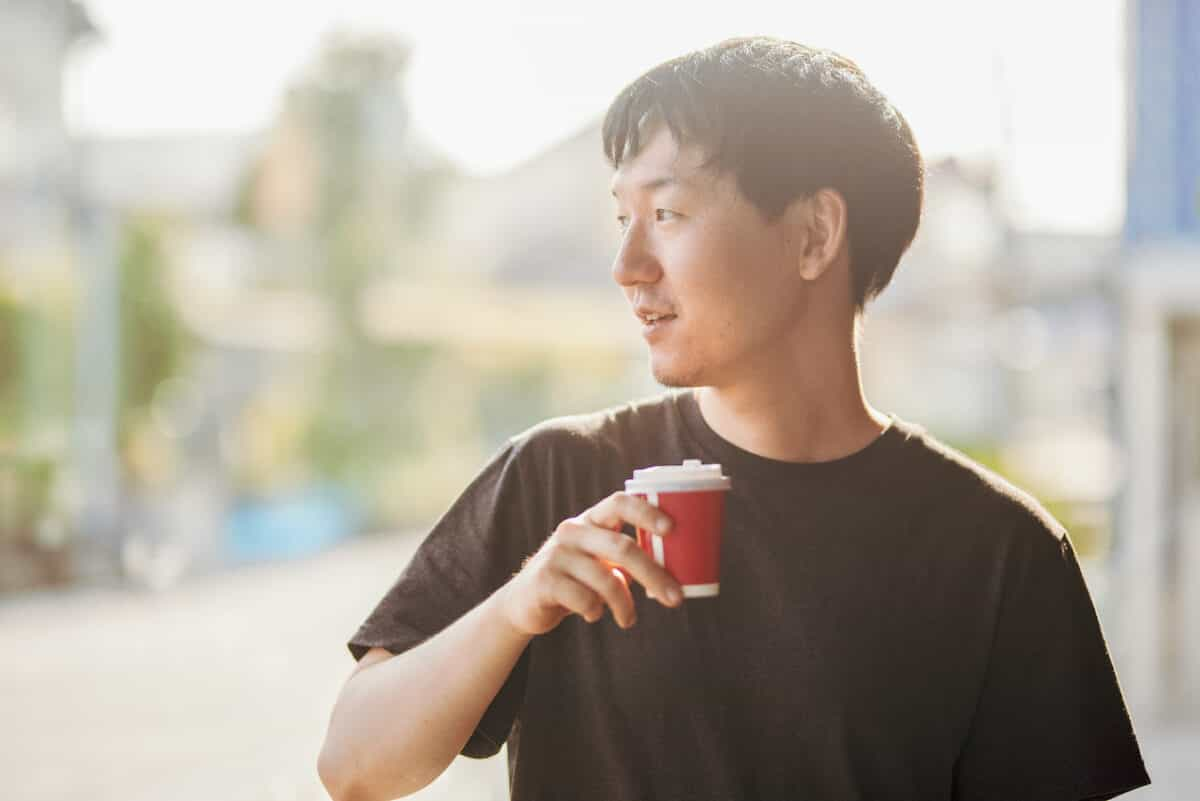
Pursuing the goal; running a company as the owner.
Oshio was born and raised by parents who ran a coffee shop in Toyama, but it wasn’t that he had lots of opportunities to be well-informed about coffee by his parents. Coffee was certainly a part of his life, but he says that he’d never thought he would enter the world of coffee.
The turning point came when he was in junior high school when he was absent from school for a while due to an injury. His parents told him, ‘You are living a lazy life. It’s good if you read about what’s going on in the world,’ and was handed a book.
“I don’t remember the title or the outline of the book, but I learned from it that poverty and conflicts are rife in the world. In order to solve the problems in the world, I would like to develop my strength and be able to influence the world in some way rather than be a cog in the wheel of society. As I thought about this, my goal of starting a business began to grow.”
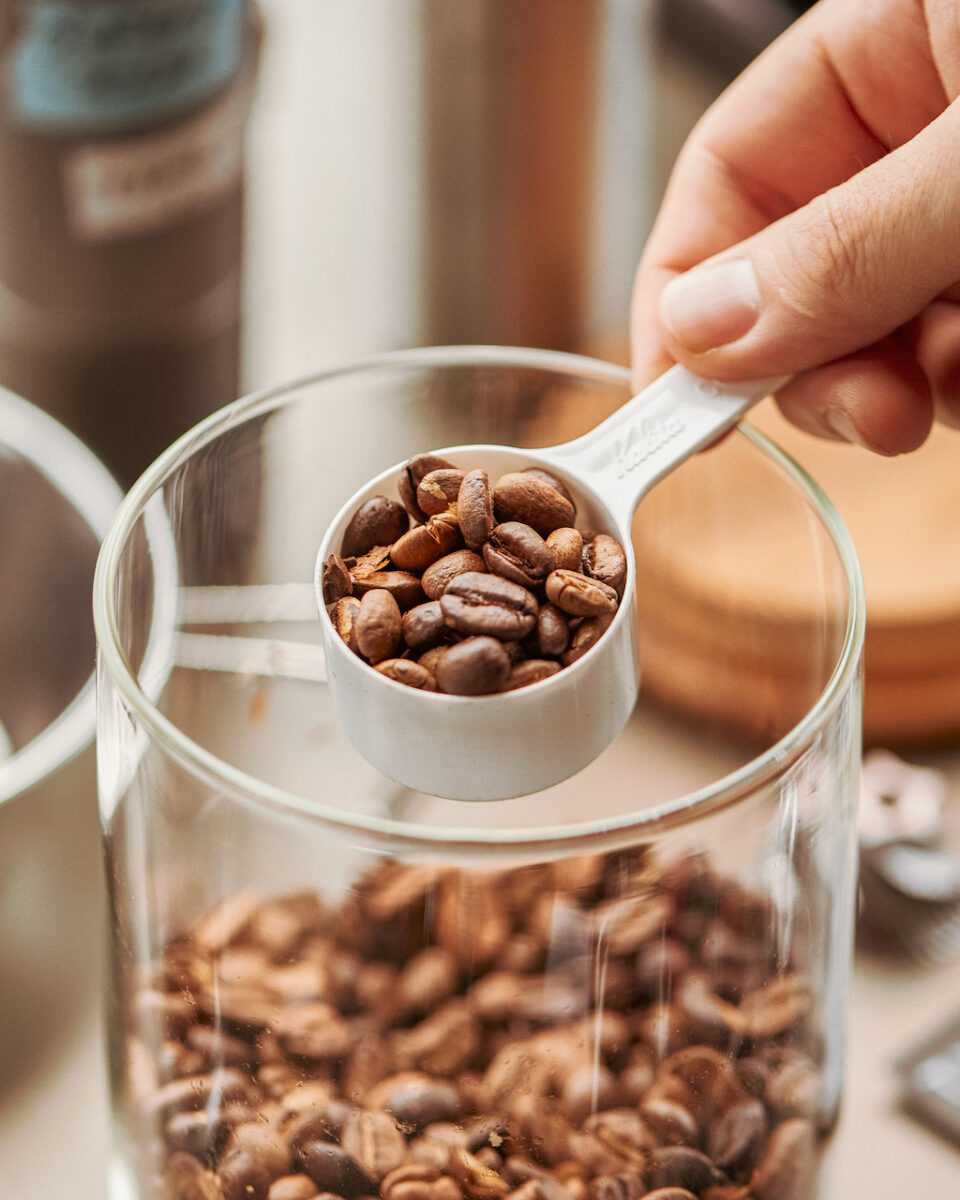
After graduating from the local high school, Oshio went to university in Tokyo where he could study English, with an eye on moving overseas.
“I didn’t have a concrete vision about my future, and hadn’t taken any action then that would lead me to any desired outcome. But if I worked in my hometown after graduating from high school, my options would be limited. If I study and go to a university in the city, I thought I could keep my hopes alive. I was driven by such impatience and fears.”
Oshio didn’t stop working towards his vision of running his own company. Keeping his eye firmly on his goal was the only way to hold himself together in the face of an uncertain reality.
After graduating from university, he worked for a food and beverage service company that acquired loss-making franchise stores and revived them. He wanted to work for the company because he had heard that if he could turn around ten stores, he could be made the director of a subsidiary company.
However, things didn’t go according to what he originally planned out. The company forced part-time staff to do various jobs without paying them overtime, and when they became full-time employees, their salaries were actually reduced. In addition to feeling increasingly uncomfortable with the exploitative working environment that took advantage of the employees, he wasn’t sure when he would be able to become a director. When he reached a dead end in his life and started to look for another way, he suddenly realized that his parents’ work had had everything he had ever wanted.
“Through coffee, I can be involved with the world, to create products and sell them through stores on a small scale. Because I thought I could become a business owner more quickly through this route, I decided to return to my hometown. My parents’ coffee shop seemed to be complete in the small space they own, but as I went out into the world and broadened my horizons, I was able to see the things I wasn’t able to before. So, it was only after that that I decided to use coffee as a means to change the world.”
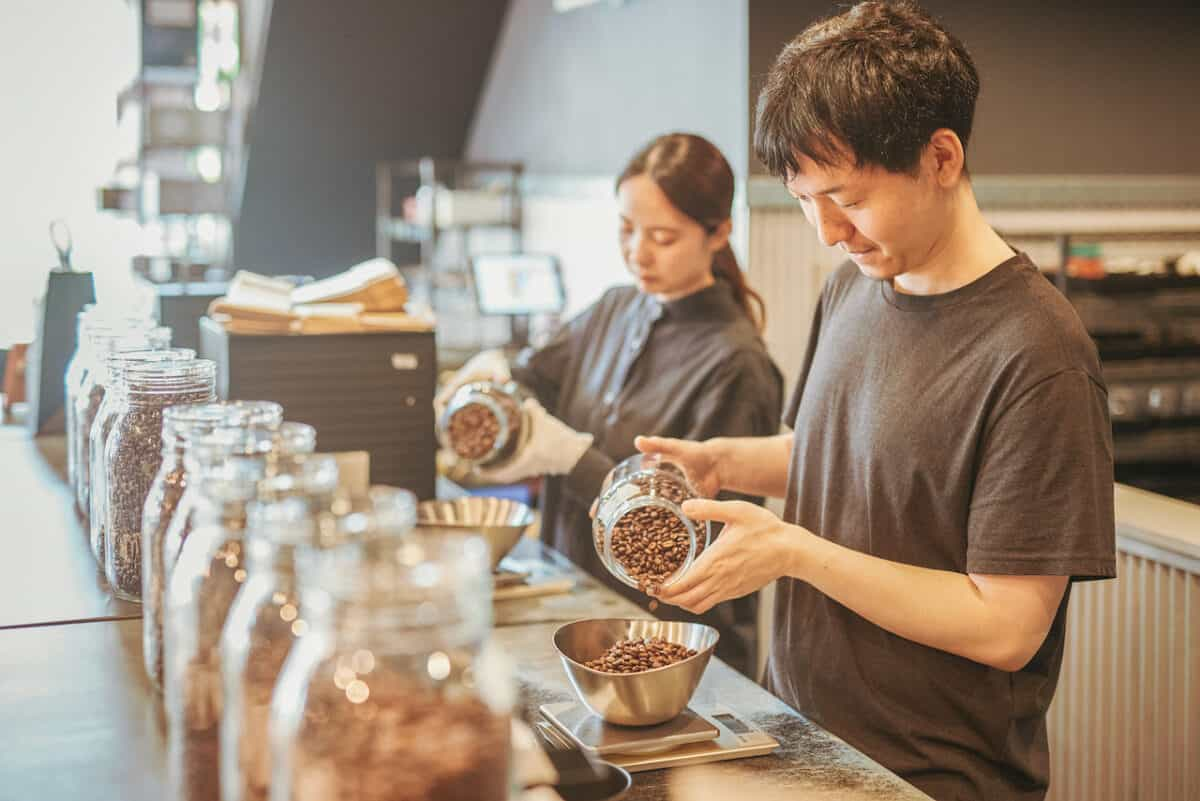
Oshio then started working at his parents’ coffee shop in 2014, which he never thought was an option until a few years ago.
“There was no room for even a part-time worker to work in the store, so when I asked my parents if I could help the shop, they refused me by saying, ‘There’s no room for you and we can’t pay you.’ I then said, “I don’t need a salary, so let me do what I want” and that’s how I got to working at my parents’ shop.” (laughs)
Oshio immediately contributed by utilizing his computer skills, like creating information on coffee to be placed in the store, improving the management. After about five years of preparation by visiting coffee origins and visiting coffee shops in Tokyo and New York, he finally opened Good Enough Coffee in April 2019.
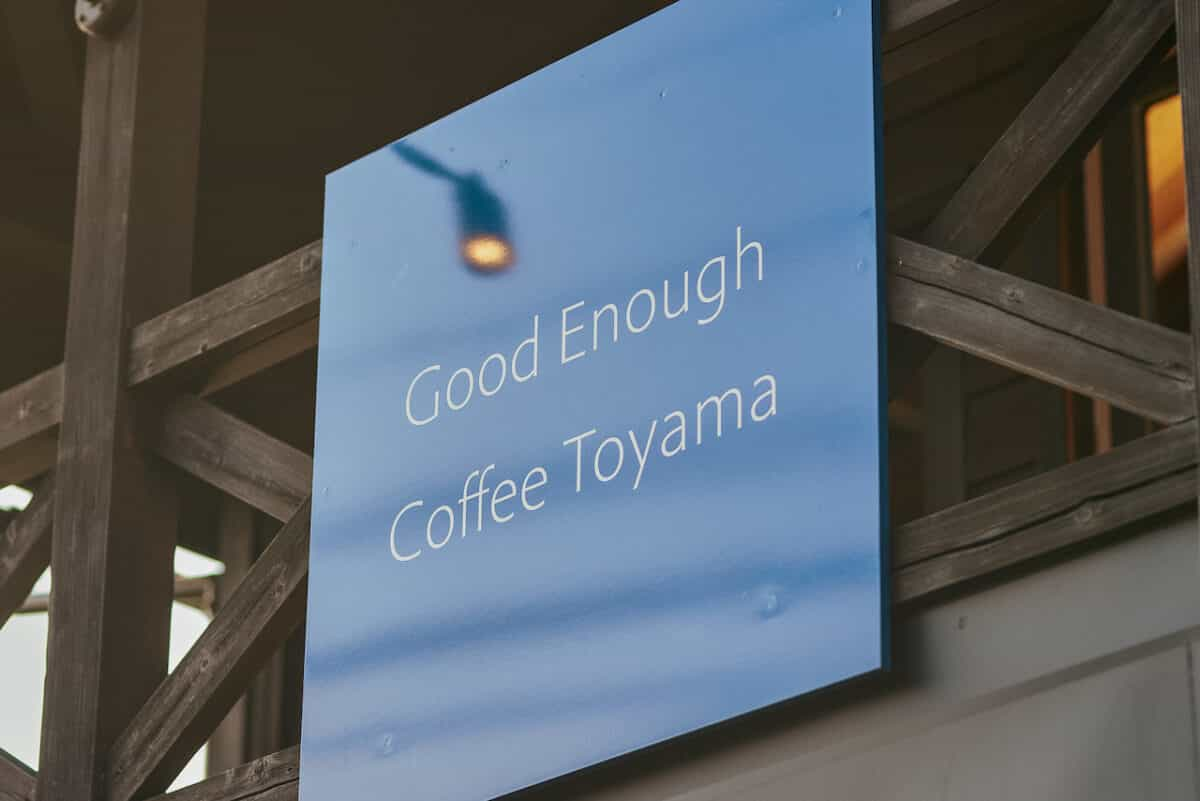
The word “Enough” is used in the name of the store with his concept that “You have everything here in Toyama prefecture. You don’t have to go to Tokyo or New York.”
Oshio states, “The longing I have for big cities is connected to my sense of value that what is popular in the city is good. But Toyama prefecture has great nature with mountains and is near the sea. There is an abundance of fresh and delicious vegetables and seafood, which are cheaper and better quality than in the cities. Information does come in later than they do in the cities, so I try to be “an importer” to bring in the latest information from the cities to Toyama prefecture.”
Oshio, who taught himself roasting and brewing techniques almost entirely, also uses the word “Enough” to mean that he can do it well in Toyama prefecture.
“As I visited cafes and coffee shops in Tokyo and New York, I became more and more convinced that the style of the shop I want to run doesn’t have to be in one particular place, or it doesn’t matter. In fact, I thought that having a perspective on fair trade would differentiate us from other coffee shops.”
“Some customers ask me, ‘Where did you get your training?’ The good thing about today’s world is you can study anywhere if you have the drive. My parents say, ‘In the old days, it was hard to choose coffee beans and you had to have connections to buy them. It’s unbelievable you can buy coffee beans even in small quantities from anywhere now. You are lucky,’ they say.

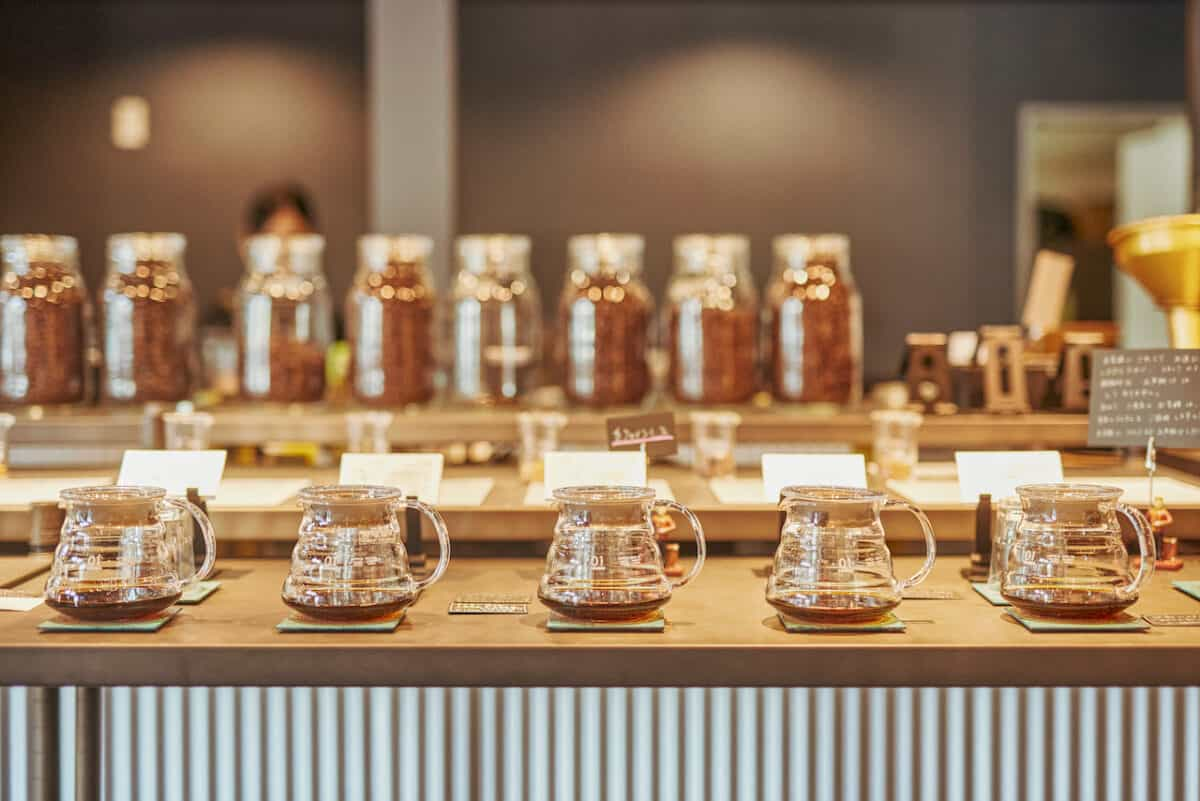
Be pessimistic in the short term and be optimistic in the long term.
Oshio has a dream that has remained unchanged for nearly twenty years ever since he read the book from his parents.
“Eventually, I want to live in Africa and support the economic independence of the local people. It’s still a long way to go, but I would like to use the money I have saved to build a school in Africa and provide education for the children.”
For Oshio, coffee isn’t just a simple luxury item or a commercial product, but a tool to change the world. Roasting coffee wasn’t originally something he really wanted to do, but once he started doing it, he couldn’t help but stick to it, which is evident from the dozen or so different types of coffee beans displayed in the store.
“The reason I make it possible for customers to smell and taste all the coffees is that limiting the types of coffee available for tasting would narrow down the choices for customers. My motto is “Thoroughness in all things.” I want to do the obvious things that anyone can do but with a level that no one else can. Rather than doing something special, I believe that if I can do it well, I can naturally differentiate myself from other people.”
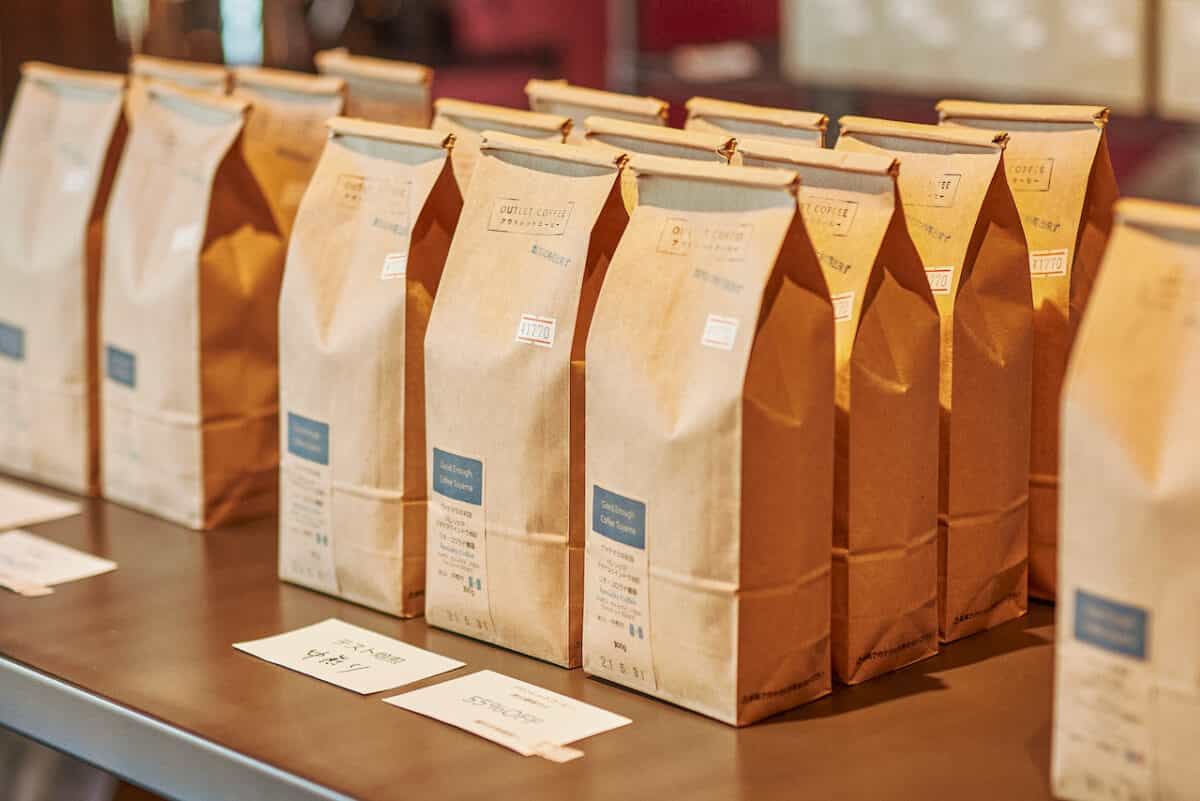
It is also typical of Oshio that he sells less than perfect coffees as “outlet coffees” in his store. In the same way that farmers sell insect-eaten or out-of-specification vegetables at a discount, they sell coffee beans that didn’t quite turn out as well after roasting, but they judge to be of a certain quality, at a discount of thirty to fifty percent off the regular price.
“This is my excuse or atonement and something like that. We usually sell the same coffee beans at the usual retail price, but there must be various circumstances in the process to end up selling them as seconds. In order to make it transparent, I think it’s acceptable to sell the coffee beans at a price based on their quality.”
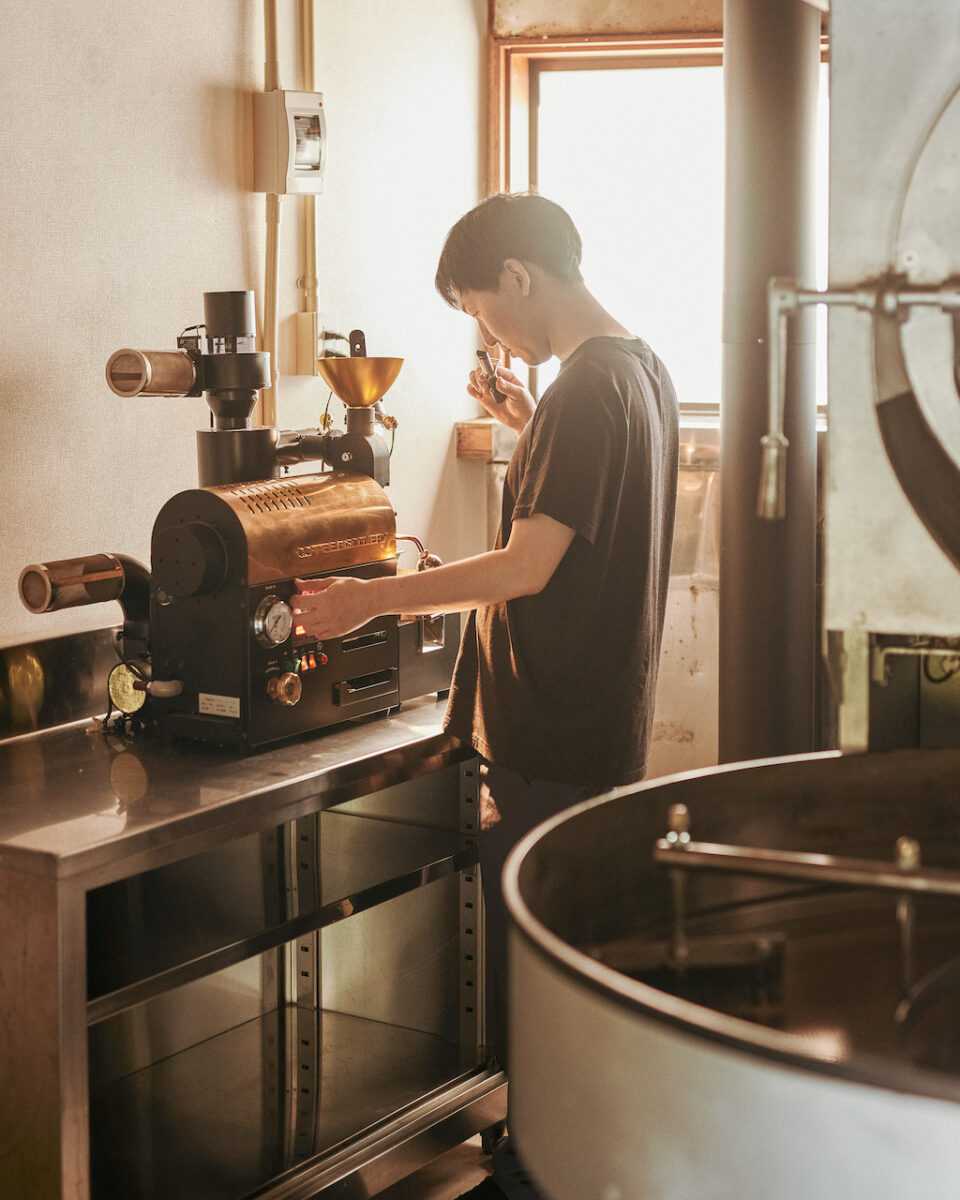
Although he has many things he would like to appeal to the public, Oshio doesn’t talk about what’s on his mind unless being asked by a customer. He does, however, provide opportunities for customers to become interested in coffee such as showing videos of coffee origins in the store.
Oshio states, “The coffee industry with its roots in colonialism is still stuck in the relationships between the exploiters and the exploited, which is also apparent in the class systems between the different races. I can’t turn a blind eye to the problem as long as I am working in this industry.”
“I always want to keep an eye on things that that aren’t right and want to be a person who notices those things. That’s why I’m happy when people tell me, ‘I didn’t think it in that way before.’
Oshio has a creed: Be pessimistic in the short term and be optimistic in the long term.
“If you’re only being pessimistic, you wouldn’t be able to involve the people around you and if you’re only optimistic, you wouldn’t be inclined to make improvements. Although I sometimes feel frustrated that I haven’t achieved anything yet, but I believe that if I make the right efforts, things will turn around. I want to keep doing what I can.”
It’s been about twenty years since he started walking toward his vision of becoming the owner of a company. Someone is waiting for him somewhere in the world at this moment. Such a conviction, akin to “prayer,” probably supports him as he lives with “burden” that he doesn’t necessarily have to carry.
Originally written in Japanese by Tatsuya Nakamichi.

MY FAVORITE COFFEE
“I am sensitive to caffeine. If I drink too much coffee, I can’t sleep, so I sometimes skip caffeine on my days off. Although I find it tasty, I think that understanding the feelings of people who can’t drink coffee is one of the strengths that people in other coffee shops don’t have.”
“A cup of coffee that left the biggest impression on me was the one I drank in a village in East Timor, where coffee is produced. No electricity, gas, water, clocks, or paved roads in the village where there was nothing that reminded me of civilization. A lady roasted coffee beans with wood, ground it in a mortar, and brewed it by flannel drip. Each step of the process seemed crude and random, but the coffee was very delicious.”
“One of the reasons the coffee tasted so good was probably because the people living in the village had no intention of exchanging their crop for cash. So they chose the best coffee beans for their own consumption. They may not have a lot of money, but all of them had smiles on their faces leading elegant and mindful lives. I remember feeling the richness of it.”

Good Enough Coffee Toyama
- [Open]
- 11:00-17:00








